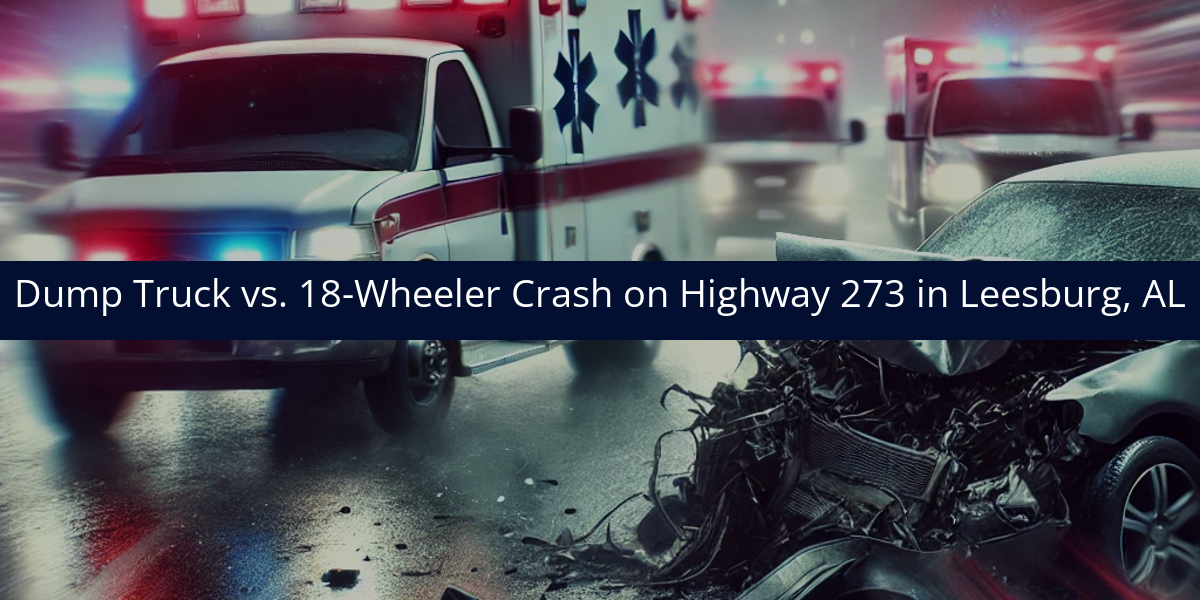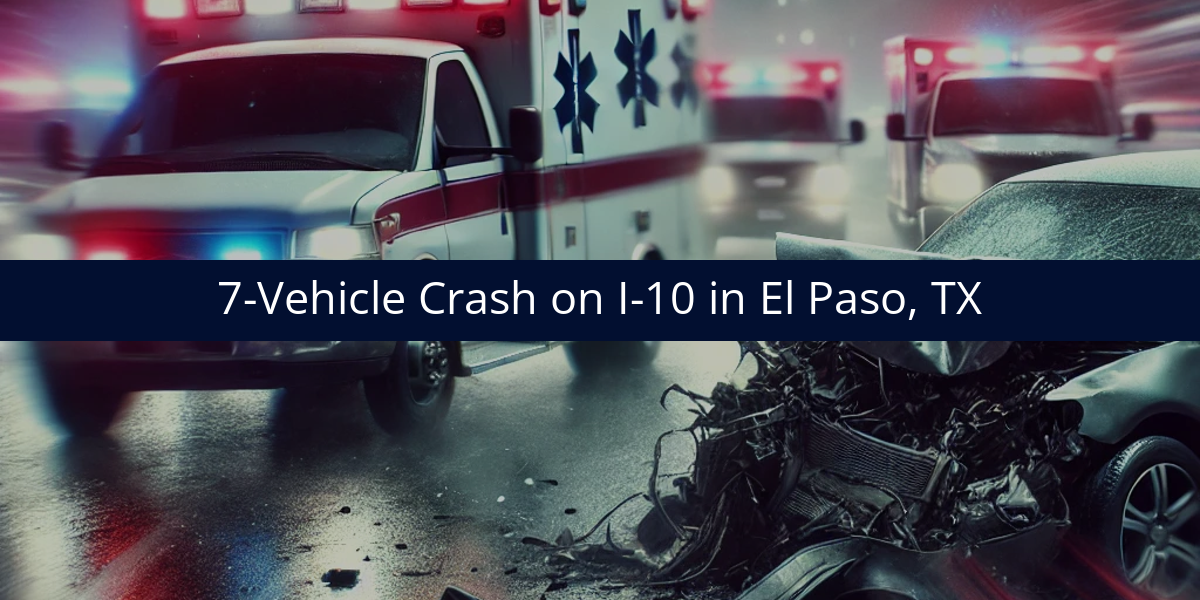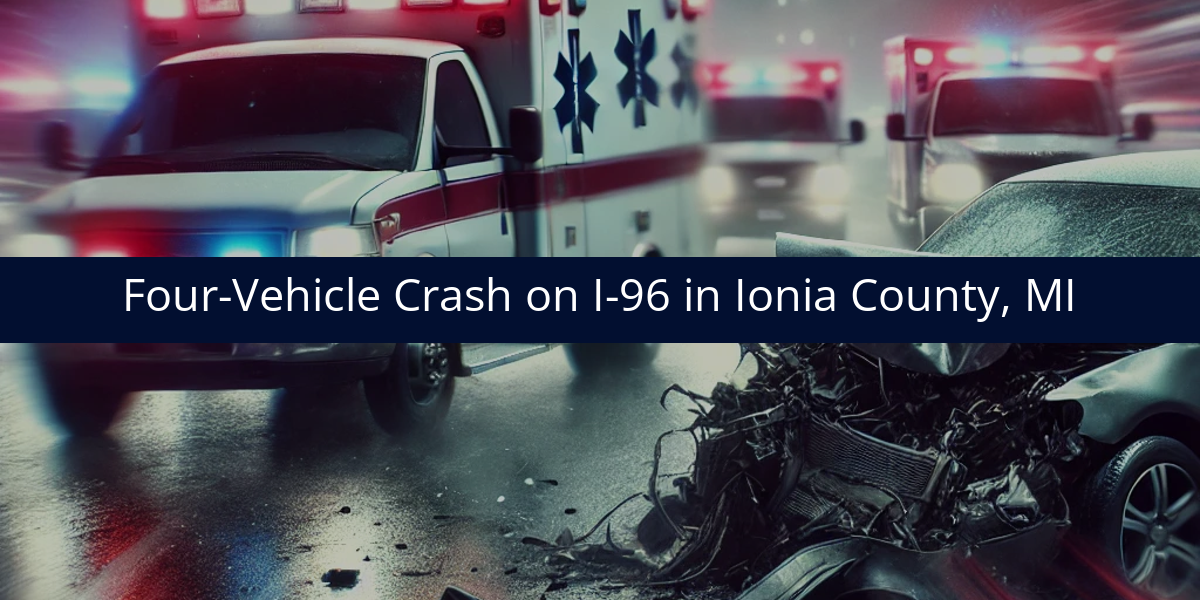The biggest mistake people make after a commercial vehicle accident is to assume that the type of truck involved in the accident doesn't make a difference. The truth is that we have different trucks doing different jobs for a reason, and those disparate purposes can play a role in a crash. This is especially true when it comes to vehicles that haul oversized or unconventional cargo, like trucks with flatbed trailers—so what is unique about investigating flatbed truck accidents?
Answer: Gathering the evidence necessary to make a flatbed truck accident case requires looking beyond what's found in a typical police report. Investigating a flatbed truck accident requires understanding the laws and regulations around a particular load, examining who loaded the vehicle, and working with accident reconstructionists who tailor their investigation to the unique physical properties of flatbed trailers.
Any truck accident investigation is about determining responsibility and ensuring accountability. The goal should always be to determine who caused the wreck and preserve the evidence necessary to hold the responsible party accountable for their actions in court, if the need arises.
What Is the Difference Between a Flatbed Trailer and a Standard Trailer?
It's understandable to think that a truck is a truck no matter what it's pulling, but flatbed trailers are different in form and function than the more conventional "box" trailers people see every day on the road.
One key difference between a flatbed trailer and a standard commercial trailer is their structures. A conventional trailer is basically a large box, enclosed on all sides and the top, which protects cargo but limits the shape and size of what can fit inside. A flatbed trailer, however, is a simple platform that is open on all sides, used to carry oversized or irregularly-shaped cargo. This gives the flatbed some flexibility; if it's too big and/or awkward to fit in a box trailer, shippers will strap it to a flatbed—construction materials, machinery, vehicles, statuary, you name it. On the other end, it can be unloaded from multiple angles, which can be useful depending on its shape.
Another difference between the trailer types is the way their cargo is secured. Standard trailers enclose their cargo, often on pallets or in crates. Restraints may still be used inside the trailer, but fewer are needed. Flatbed trailers, however, often need plenty of heavy restraints like chains, ratchet straps, or high-tension cable. The more play a bulky object has to wiggle on the trailer, the greater the risk it will shift or fall off during transit. On the other hand, restraints pulled too tight may damage the cargo. It takes practice and skill to find the correct middle ground that keeps the goods intact but securely in place.
Ultimately, these and other differences make flatbeds more versatile, but they also introduce some safety challenges—and investigative ones if a flatbed truck gets in an accident.
How Does the Presence of a Flatbed Trailer Change How a Crash Should Be Investigated?
The presence of a flatbed trailer significantly changes how a crash should be investigated, because the trailer’s design and cargo handling create unique risks and evidence considerations. In addition to many conventional sources of evidence (crash reconstruction, witness statements, reviewing video footage, etc.), investigators must consider the following:
- Unsecured or partially restrained cargo - As we mentioned above, flatbed trailer cargo is often tied down with straps or chains rather than enclosed. Accident investigators have to look at those and their attachment points to see whether shifting or falling cargo contributed to the wreck, which can complicate scene reconstruction.
- Cargo movement during impact - If cargo isn't strapped down tightly enough, it may keep moving after the truck carrying it crashes. That means it may cause additional injuries independent of the collision. Understanding how the load behaved is crucial when assessing the sequence of events.
- Exposure to the elements - Flatbed cargo often travels fully exposed to the elements, so investigators may have to consider whether snow, rain, wind, and other ambient conditions affected load stability.
- Securing methods - Tight restraints can leave marks, breaks, or other signs of physical stress on the cargo they held down. Investigators may look at those signs to figure out whether the load was secured correctly and whether proper safety protocols were followed.
These and other factors set a flatbed investigation apart, as not only the vehicle and driver but also the cargo must be assessed. That often makes flatbed investigations more detailed and intricate than ones involving enclosed box trailers.
Are Police Crash Investigators Properly Trained to Investigate Flatbed Trailer Accidents?
We've found over the years that typical law enforcement crash investigators aren't always equipped to properly investigate truck accidents—let alone unusual ones like those with flatbed trailers. Standard training generally focuses on passenger vehicles, since the vast majority of wrecks involve those. Officers may get some commercial crash training as well, but it will likely focus mostly on trucks with enclosed trailers. Training programs rarely cover the unique aspects of flatbeds, such as how their loads are secured, how that irregular cargo affects the dynamics of a crash, or how to evaluate whether load securement regulations were followed.
Without specialized knowledge in flatbed operations and cargo standards, police investigators may miss key evidence that explains how and why the crash occurred. To make sure the whole story is learned, attorneys often turn to professional accident reconstruction experts and trucking industry specialists who know what to look for after a flatbed truck accident. With the information they uncover, an experienced attorney can start to build an effective case—as well as identify all its potential defendants.
Flatbed Trailers Increase the Likelihood Your Case Will Have Multiple Defendants
As is often the case in commercial truck accidents, liability for a flatbed trailer crash may extend beyond the truck driver who caused it. The following are some other potential defendants that might turn up in court after a flatbed wreck:
- The trucking company who put the driver on the road might be responsible for hiring, training, and supervising him, and there's possibility for negligence in every one of those. It takes extensive practice and specialized attention to get a driver ready to haul oversized cargo, so putting an unprepared employee behind the wheel would be highly reckless.
- If the company owns the truck and trailer and failed to maintain either or both, that's another possible reason to see them in court. If they outsource maintenance, though, then the maintenance firm they use might be at fault if anything malfunctioned due to disrepair.
- If the trailer was owned or (more likely) loaded by a third party, such as whoever made the oversized or irregularly-shaped cargo, then the loading company may be liable for improperly securing it. It might also be held accountable if it mislabeled or misrepresented cargo that was inherently dangerous.
- Just as they sometimes outsource maintenance, some trucking companies rely on third-party routing companies for driver dispatch and navigation. If one of those dispatchers misdirects a flatbed to somewhere unsafe for oversized or unsecured loads—narrow lanes, steep grades, or low-clearance bridges, for example—the company may be liable for whatever mayhem follows. If the dispatcher bypasses safer routes in favor of cheaper or faster options, that might also be grounds to see their employer in court.
- Last but certainly not least, virtually any corporate defendant will also have an insurance company by its side. Insurers usually aren't direct defendants in a lawsuit, but they are obligated to defend their policyholders to the best of their ability. Unfortunately, that means insurers try to sway a jury by conducting their own investigations, blaming the victim for the accident, and downplaying the severity of the victim's injuries.
Because the safe operation of a flatbed trailer relies on the combined efforts of multiple entities, investigating the accident often uncovers overlapping responsibilities. This creates a greater chance that more than one party will bear legal liability for the victim’s injuries, leading to lawsuits that name multiple defendants instead of a single trucking company or driver. As you might imagine, this creates a difficult legal landscape for victims or even less-experienced attorneys to navigate.
Grossman Law Offices Is Here to Help
As we went over in this article, there are many complexities to a flatbed truck accident. These cases often involve specialized regulations, unique investigations, and multiple defendants—none of whom are likely to accept liability without a fight. Without experienced legal representation on their side, it is close to impossible for an injured person to overcome these challenges and get what they deserve.
The Texas truck accident attorneys at Grossman Law Offices have decades of experience handling complex trucking cases that go far beyond the scope of a typical car crash claim. Our team understands the unique challenges posed by flatbed accidents, and has a proven track record against stubborn trucking companies and their insurance allies. Once they're on the case, Grossman attorneys get right to work to ensure you receive full and fair compensation.
If you were injured or lost a loved one in an accident with a flatbed trailer or any other commercial vehicle, we want to hear from you. Contact Grossman Law Offices today for a free and confidential consultation. We are available 24/7.













